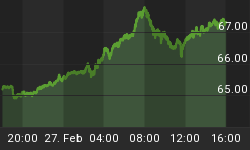Phased reopening in U.S. states doesn’t necessarily mean that all Americans are suddenly back on their financial feet with enough funds to pay their mortgages--a situation prompting the Federal Housing Finance Agency (FHFA) this week to extend the foreclosure and eviction moratorium, which was set to expire at the end of this month.
The new moratorium for borrowers with mortgages backed by Fannie Mae and Freddie Mac runs until at least the end of August, and applies to enterprise-backed, single-family mortgages only.
"During this national health emergency, no one should worry about losing their home," FHFA Mark Calabria said in a statement.
About 8.8% of mortgages backed by Fannie Mae and Freddie Mac are now in forbearance.
In the past three months, more than 46 million Americans filed for unemployment insurance. Even though the new unemployment claims are slowing down in the past couple of weeks, the unemployment rate is still over 16% nationally, with some states facing unemployment rates in excess of 20%.
This is the second time the FHFA has extended the moratorium since it was first established in March.
The Coronavirus Aid, Relief, and Economic Security (CARES) Act, which was passed in March, allows for a three to six-month delay in mortgage payments.
Currently, 4.6 million homeowners are in forbearance plans, which allows them to delay their monthly payments for at least three months. That represents 8.7% of all active mortgages. Even more harrowing, those loans represent more than $1 trillion in unpaid principal.
Requests to delay mortgage payments skyrocketed in April. At the end of March, there were more than 200,000 requests, while in the first week of May, that number jumped to more than 700,000.
However, as more people return work and states pursue phased reopenings, the number of borrowers seeking relief on their mortgage payments has fallen for the third straight week. Black Knight, a mortgage data and technology firm, reported that the numbers are down by 57,000 from last week and by 158,000 from the peak week, in late May.
But that is only one side of the story.
Forbearances of loans that are not backed by government agencies are on the rise. The total forbearances of such loans--held either held by banks, private-label securities and other non-agency investors--rose by 6,000 last week.
According to a survey by Apartment List, 30% of Americans missed their housing payments in June--a percentage that includes both mortgage and rent payments.
That’s up from 24% who missed their payments just two months earlier in April and about on par with the 31% who missed payments in May. The survey found that of those who have yet to make their June housing payment, one-third have made a partial payment and two-thirds have made no payment at all.
“37 percent of renters (and 26 percent of homeowners) are at least somewhat concerned that in the next six months they will face eviction or foreclosure,” the survey said.
Last month, Columbia University released troubling findings showing that 800,000 Americans could be experiencing homelessness by the end of the summer. The researchers estimate that homelessness could increase by between 40% and 45% this year over where it was in January 2019.
By Charles Benavidez for Safehaven.com
More Top Reads From Safehaven.com:
















